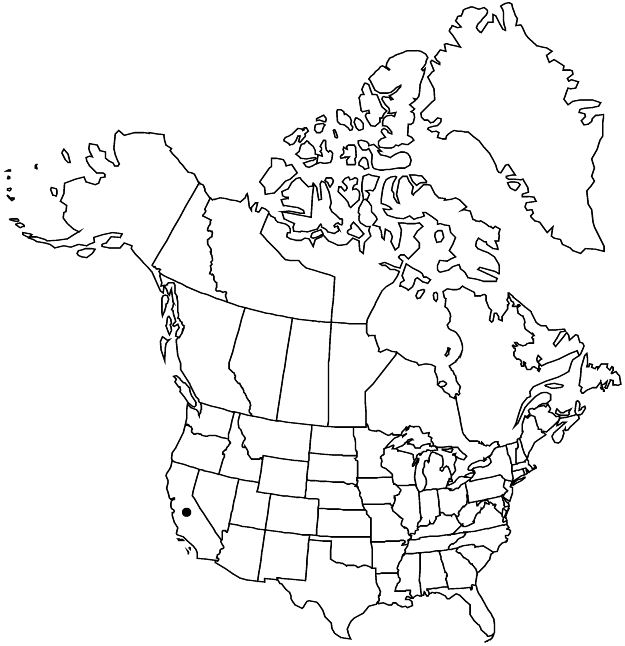Ceanothus tomentosus
Proc. Davenport Acad. Nat. Sci. 5: 190. 1889.
Shrubs, evergreen, 1.5–2.5 m. Stems erect, rarely spreading, not rooting at nodes; branchlets reddish brown, not thorn-tipped, round in cross section, flexible, tomentulose, glabrescent. Leaves: petiole 1–4 mm; blade flat, ovate to widely elliptic, 10–25 × 5–12 mm, base obtuse to rounded, margins serrulate to denticulate most of length, not revolute, teeth 39–71, apex obtuse, abaxial surface light or gray-green, tomentose to tomentulose, adaxial surface dark green, villosulous or puberulent, glabrescent; usually 3-veined from base, rarely pinnately veined (veins sometimes obscured by indumentum). Inflorescences axillary or terminal, racemelike or paniclelike, 2–6 cm. Flowers: sepals, petals, and nectary usually deep blue, sometimes pale blue. Capsules 3–4 mm wide, slightly lobed at apex; valves smooth, viscid when young, crested.
Distribution

Calif., nw Mexico.
Discussion
Varieties 2 (2 in the flora).
Selected References
None.
Key
| 1 | Leaf blade abaxial surfaces uniformly and densely tomentulose, veins obscured; c Sierra Nevada, California. | Ceanothus tomentosus var. tomentosus |
| 1 | Leaf blade abaxial surfaces sparsely to moderately tomentulose, veins ± evident; s California. | Ceanothus tomentosus var. olivaceus |